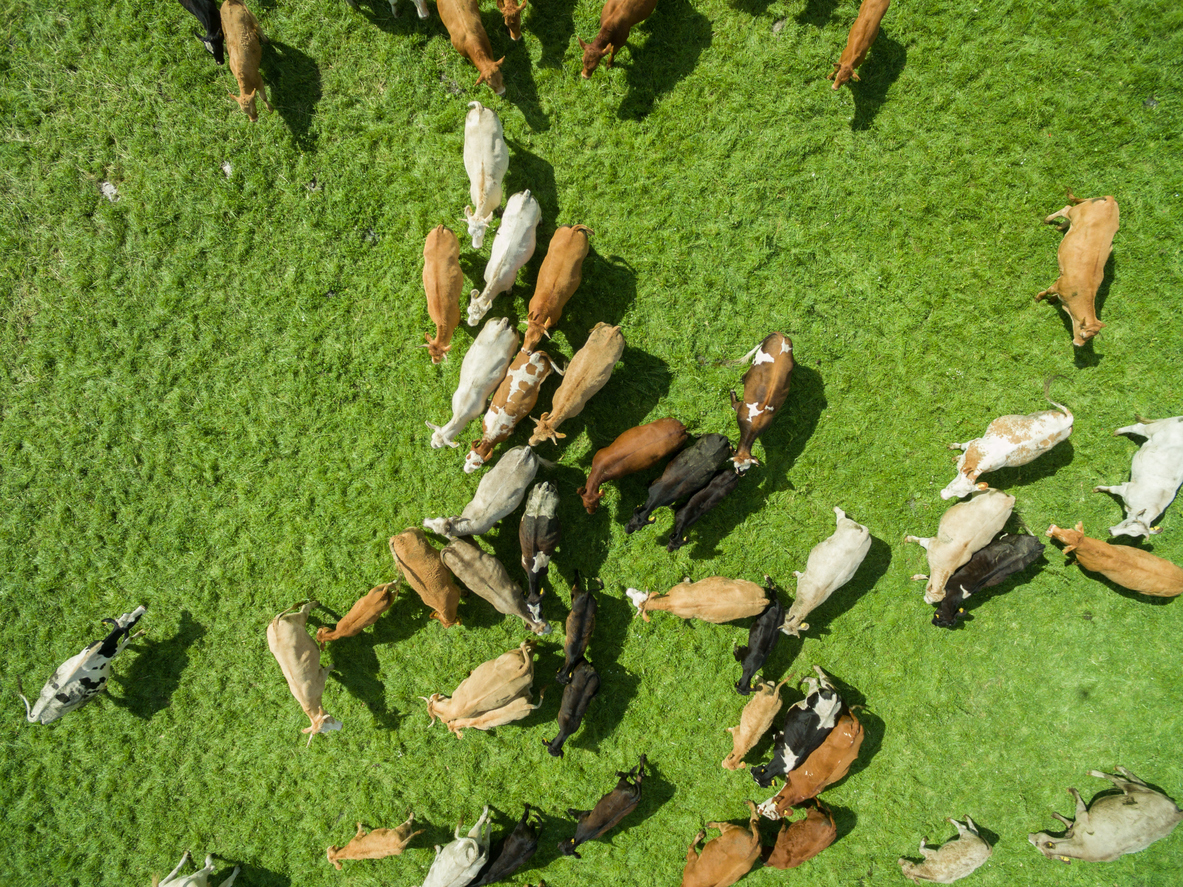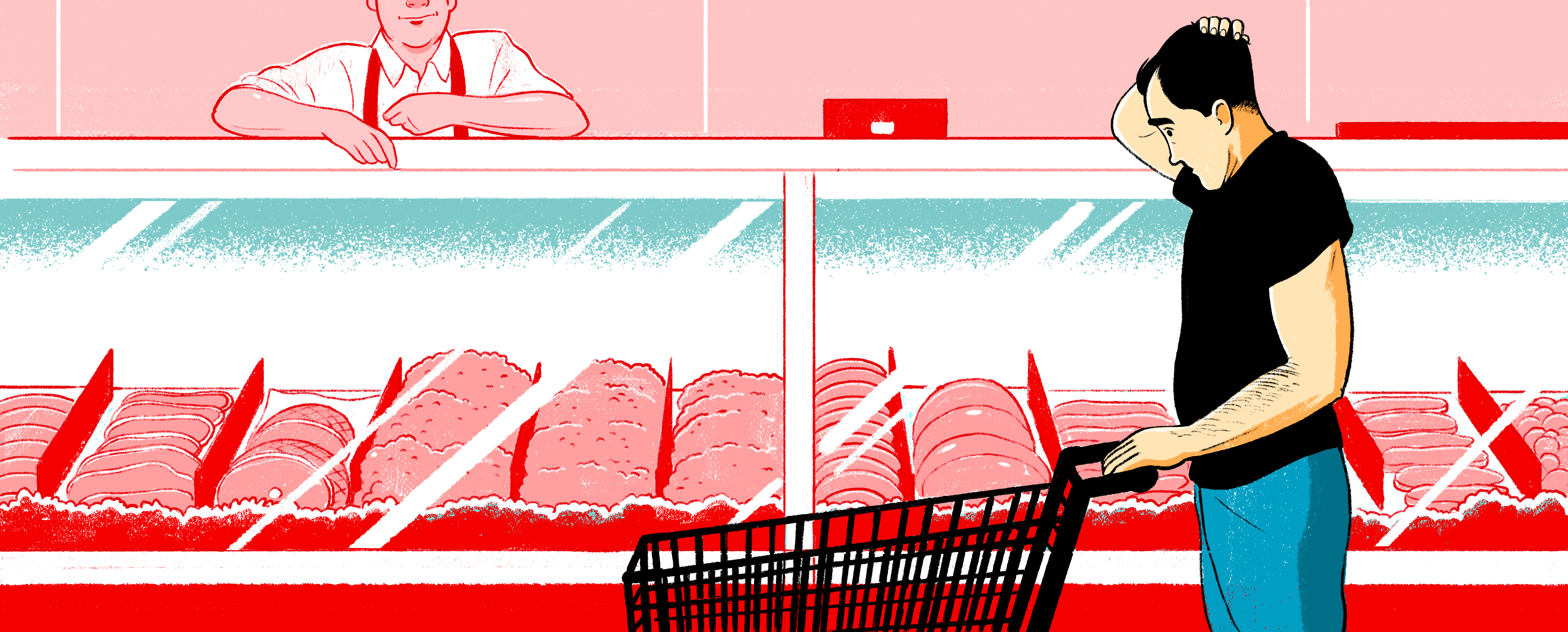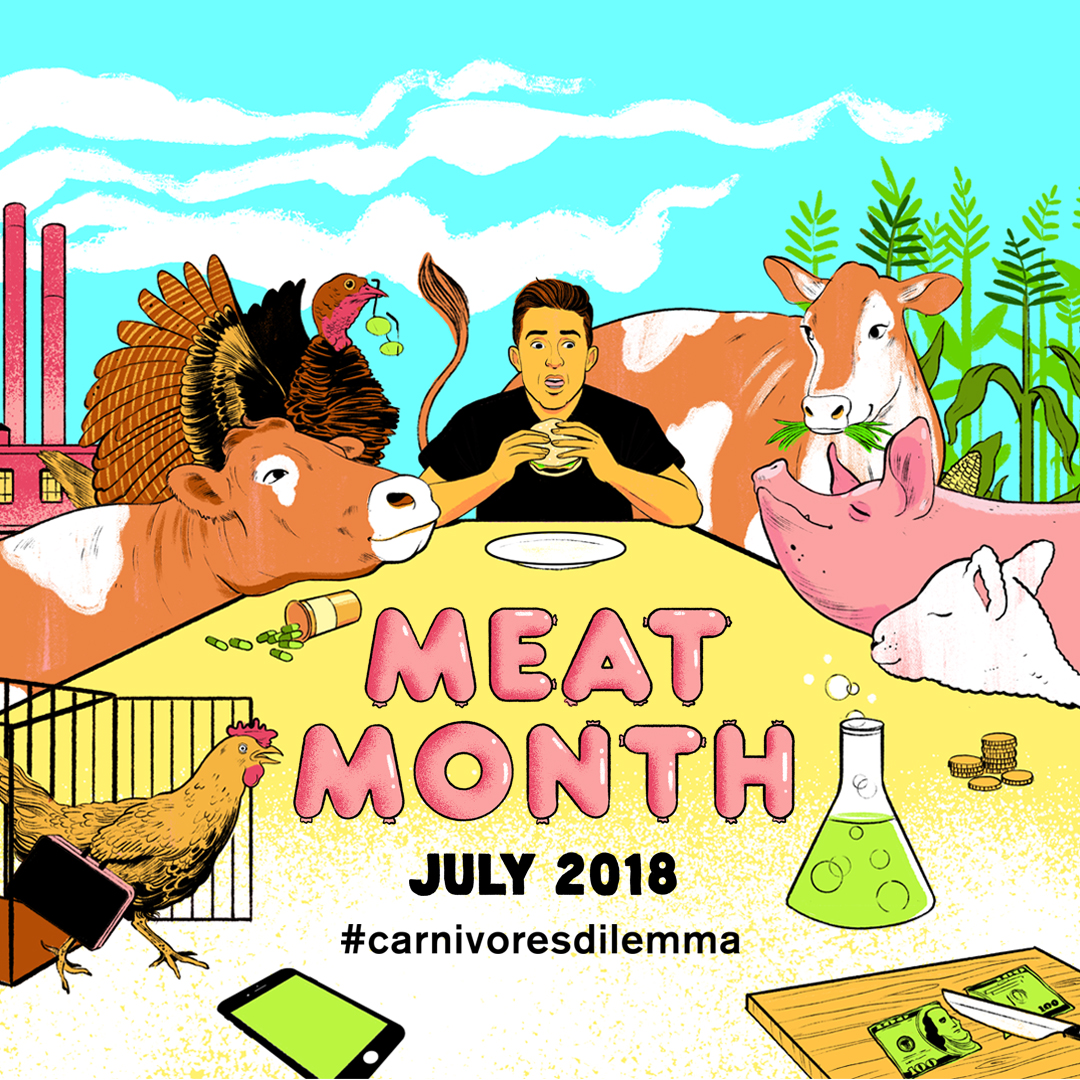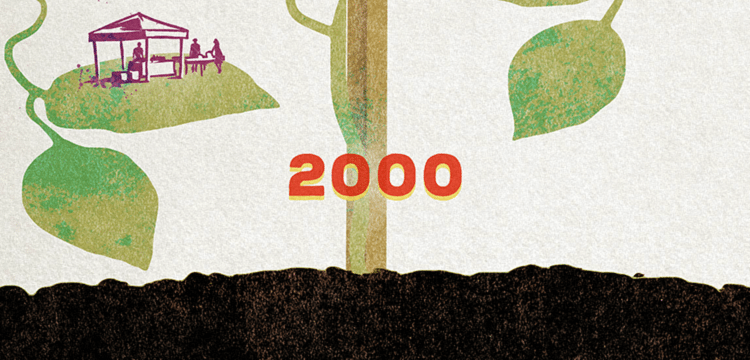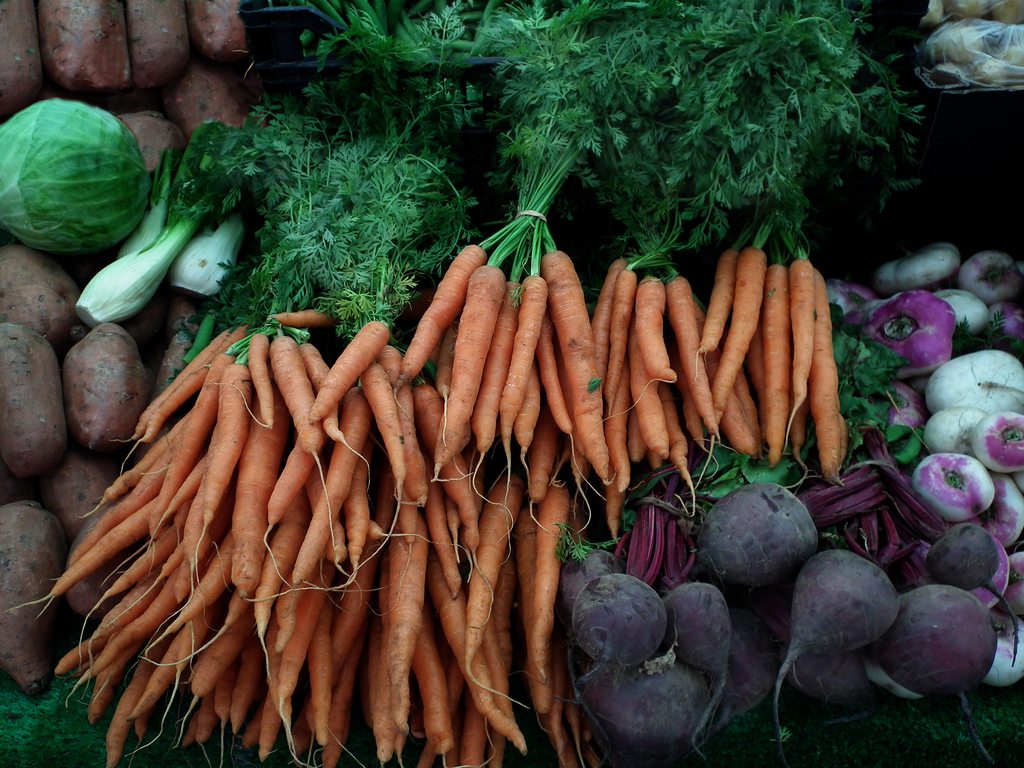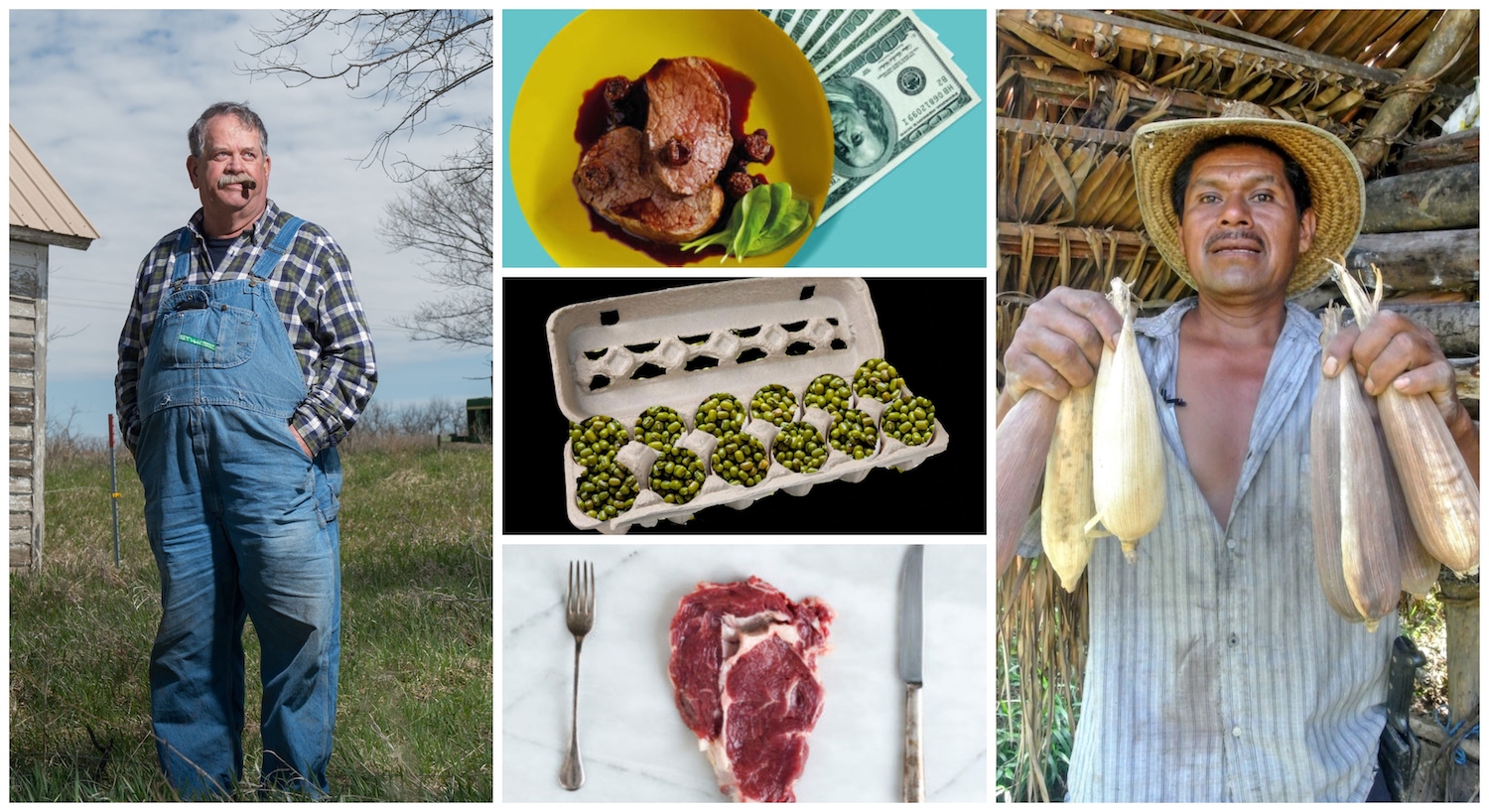New Food Economy editor Joe Fassler answers your questions about meat labeling
Our second Meat Month Q&A features The New Food Economy’s own Joe Fassler, who recently covered the way foreign beef can legally labeled “Product of U.S.A.”—and how it’s affecting America’s grass-fed cattle industry.
It’s just one example of the ways that every day product labels can be confusing, misleading, or downright deceptive. In a Twitter chat Thursday, Fassler helped us make sense of some of the most vexing decisions we face in the meat aisle, from how much marketing claims like “grass-fed” and “cage-free” really mean, to whether we should actually care about the “sell by” date on meat, and if free-range chicken really tastes better.
If you missed the conversation, don’t panic. Here’s a recap.
~
Our first question came from an NFE staff member on whether or not a meat’s country of origin actually matters:
So we’ll kick this off with a question from the staff: Is all grass-fed beef created equal, or does country of origin actually matter? #carnivoresdilemma
— The New Food Economy (@newfoodeconomy) July 19, 2018
Turns out, it all depends on why you’re buying it:
Hi! So, it depends on why you’re buying grass-fed in the first place. It’s hard to tell how practices vary from one country to another. Respected certifications like @AmerGrassfed are more meaningful. But if you want to support local farmers, country of origin REALLY matters.
— Joe Fassler (@joefassler) July 19, 2018
This user is concerned about his local grocer keeping meat on the shelves past the “Best By” date:
Hi! Our local grocer frequently has packaged meat for sale past its “use by/sell by” date! The local regulators say there is no punishable offense. Can that be right? #carnivoresdilemma
— TΞRRΞNCΞ “BLOCKCHAIN BUT MY PENCIL BROKE” GΞARY (@artisanmatters) July 19, 2018
To the surprise of many, as long as the product isn’t visibly spoiled, it can be legally sold:
I’m not an expert on this, but it appears your grocer is right (at least legally). “Best by” dates guide stocking decisions, but aren’t a safety measure. USDA says visibly unspoiled foods “may be sold, purchased, donated and consumed beyond the labeled date.” Caveat emptor!
— Joe Fassler (@joefassler) July 19, 2018
And perhaps if we stop letting “Sell By” dates scare us, we could reduce food waste. But be wary, this rule doesn’t apply to all packaged foods:
A lot of perfectly good food is wasted because of unfounded fears around “sell by” dates. That said, fresh meat is not the same as packaged snacks, etc. I don’t blame you for being wary. Here’s some more info from USDA. #carnivoresdilemma https://t.co/Q6MUueILYL
— Joe Fassler (@joefassler) July 19, 2018
Another NFE staff member is confused about eggs and what it means when eggs are labeled “cage-free” vs when they aren’t:
Here’s another question we have on our minds: Eggs are as confusing as meat! What’s the difference between eggs that are labeled “cage-free” and those that aren’t? #carnivoresdilemma
— The New Food Economy (@newfoodeconomy) July 19, 2018
TL;DR “cage-free” means nothing:
There’s widespread consumer confusion about “cage-free.” Consumers think it means chickens frolicking about in pasture. The reality is very different—thousands of chickens cooped together in a crowded, windowless barn w/o outdoor access. Just as crowded, minus cages.
— Joe Fassler (@joefassler) July 19, 2018
One question was about the effect that labels like “free range” actually have on taste:
Here’s another one for you @joefassler: Do labels like “free-range” actually ultimately have any effect on taste? #carnivoresdilemma
— The New Food Economy (@newfoodeconomy) July 19, 2018
Fassler says, ultimately, taste is subjective. But there is a study that’s tested this theory and “free range” reigned superior:
Farm-to-table chefs will tell you local, sustainable food just *tastes* better. You may have experienced something similar in your own cooking. But taste is incredibly subjective and suggestible—some things seem more flavorful because we think they should be. #carnivoresdilemma
— Joe Fassler (@joefassler) July 19, 2018
That said, I do know of one legitimate, double-blind study that examined this. The verdict: Free-range chicken really does taste better! So maybe the farm-to-table chefs are onto something after all. https://t.co/EPyEf8mdaq #carnivoresdilemma
— Joe Fassler (@joefassler) July 19, 2018
Food Policy Action wanted to know about the level of clarity we should have about where our food is coming from:
Since 2015, beef and pork products from foreign countries that are processed in the U.S. are able to be labeled “Product of U.S.A.” What do you think, should we have more clarity about where our food is coming from? Via @joefassler on @newfoodeconomy https://t.co/PiVzLwwLJC
— Food Policy Action (@FPAction) July 19, 2018
Fassler hopes that clarity is something the United States Department of Agriculture (USDA) addresses in order to help those who want their grass-fed beef to be local and purchase it to support local farmers:
Since 2015, beef and pork products from foreign countries that are processed in the U.S. are able to be labeled “Product of U.S.A.” What do you think, should we have more clarity about where our food is coming from? Via @joefassler on @newfoodeconomy https://t.co/PiVzLwwLJC
— Food Policy Action (@FPAction) July 19, 2018
~
Now you’re all caught up! Thanks to Joe Fassler for a great Q&A. And stay tuned: We’ll be hosting more #CarnivoresDilemma discussions all throughout the month of July.
